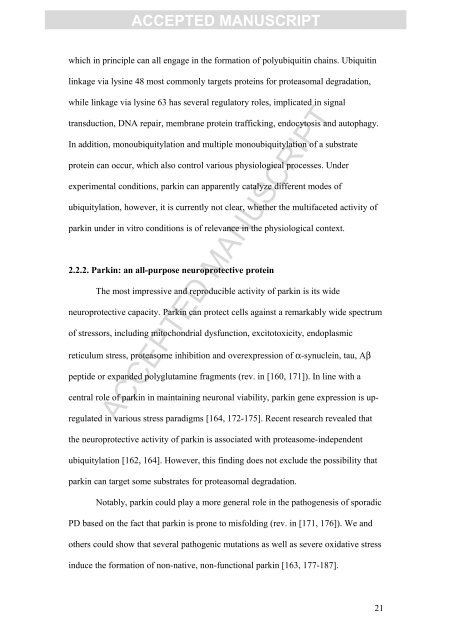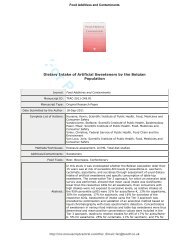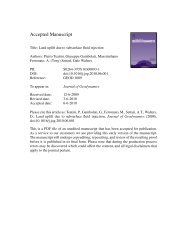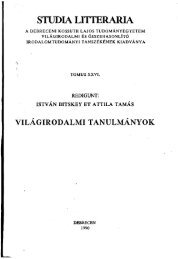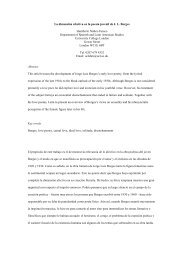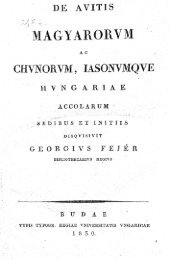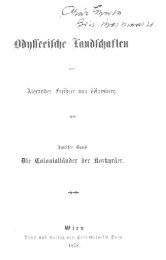accepted manuscript
accepted manuscript
accepted manuscript
You also want an ePaper? Increase the reach of your titles
YUMPU automatically turns print PDFs into web optimized ePapers that Google loves.
ACCEPTED MANUSCRIPT<br />
which in principle can all engage in the formation of polyubiquitin chains. Ubiquitin<br />
linkage via lysine 48 most commonly targets proteins for proteasomal degradation,<br />
while linkage via lysine 63 has several regulatory roles, implicated in signal<br />
transduction, DNA repair, membrane protein trafficking, endocytosis and autophagy.<br />
In addition, monoubiquitylation and multiple monoubiquitylation of a substrate<br />
protein can occur, which also control various physiological processes. Under<br />
experimental conditions, parkin can apparently catalyze different modes of<br />
ubiquitylation, however, it is currently not clear, whether the multifaceted activity of<br />
parkin under in vitro conditions is of relevance in the physiological context.<br />
2.2.2. Parkin: an all-purpose neuroprotective protein<br />
The most impressive and reproducible activity of parkin is its wide<br />
neuroprotective capacity. Parkin can protect cells against a remarkably wide spectrum<br />
of stressors, including mitochondrial dysfunction, excitotoxicity, endoplasmic<br />
reticulum stress, proteasome inhibition and overexpression of α-synuclein, tau, Aβ<br />
peptide or expanded polyglutamine fragments (rev. in [160, 171]). In line with a<br />
central role of parkin in maintaining neuronal viability, parkin gene expression is up-<br />
ACCEPTED MANUSCRIPT<br />
regulated in various stress paradigms [164, 172-175]. Recent research revealed that<br />
the neuroprotective activity of parkin is associated with proteasome-independent<br />
ubiquitylation [162, 164]. However, this finding does not exclude the possibility that<br />
parkin can target some substrates for proteasomal degradation.<br />
Notably, parkin could play a more general role in the pathogenesis of sporadic<br />
PD based on the fact that parkin is prone to misfolding (rev. in [171, 176]). We and<br />
others could show that several pathogenic mutations as well as severe oxidative stress<br />
induce the formation of non-native, non-functional parkin [163, 177-187].<br />
21


